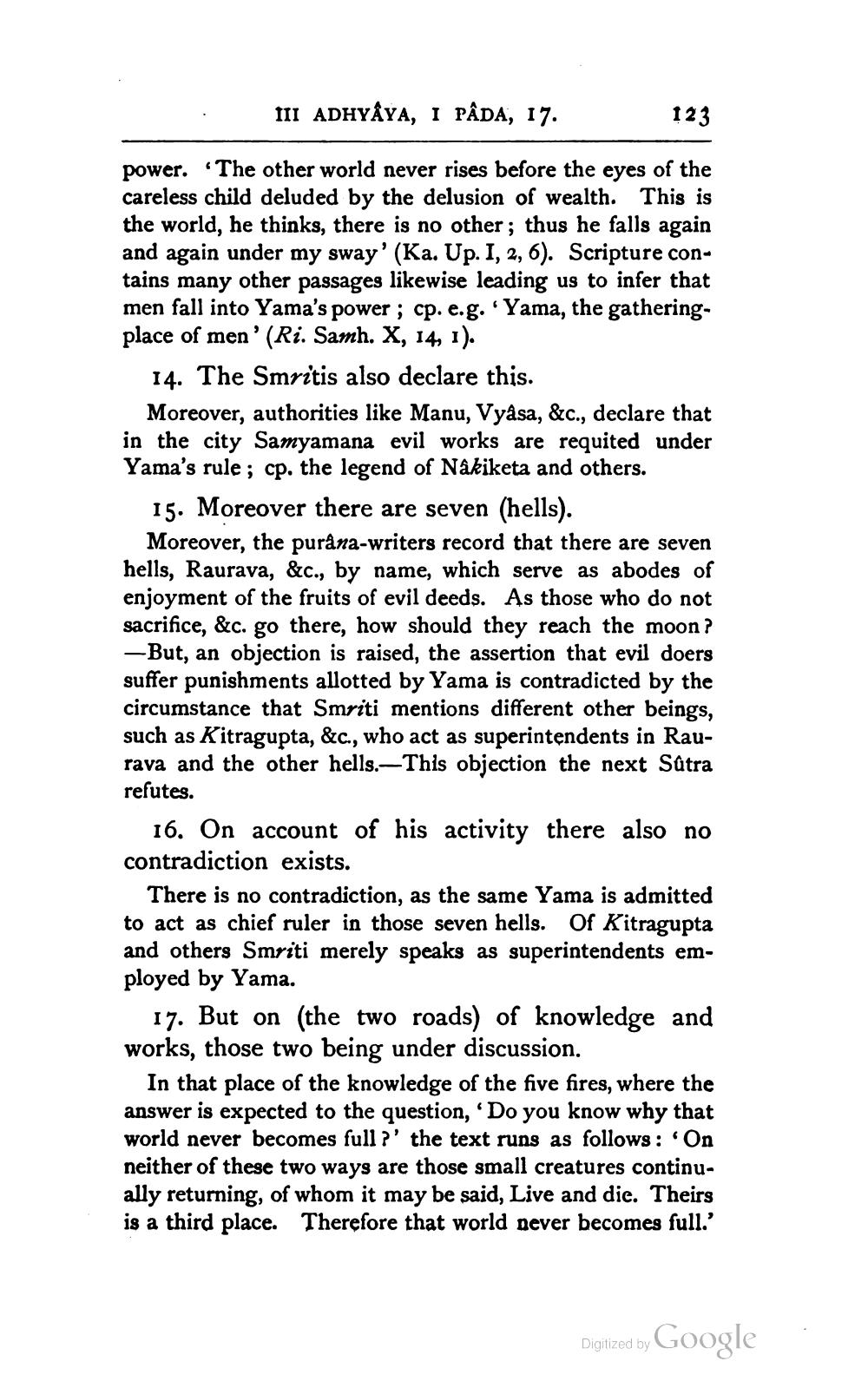________________
III ADHYAYA, I PÂDA, 17.
123
power. The other world never rises before the eyes of the careless child deluded by the delusion of wealth. This is the world, he thinks, there is no other; thus he falls again and again under my sway' (Ka. Up. I, 2, 6). Scripture contains many other passages likewise leading us to infer that men fall into Yama's power; cp. e.g. 'Yama, the gatheringplace of men' (Ri. Samh. X, 14, 1).
14. The Smritis also declare this.
Moreover, authorities like Manu, Vyâsa, &c., declare that in the city Samyamana evil works are requited under Yama's rule; cp. the legend of Nâkiketa and others.
15. Moreover there are seven (hells).
Moreover, the purâna-writers record that there are seven hells, Raurava, &c., by name, which serve as abodes of enjoyment of the fruits of evil deeds. As those who do not sacrifice, &c. go there, how should they reach the moon? -But, an objection is raised, the assertion that evil doers suffer punishments allotted by Yama is contradicted by the circumstance that Smriti mentions different other beings, such as Kitragupta, &c., who act as superintendents in Raurava and the other hells.-This objection the next Sûtra refutes.
16. On account of his activity there also no contradiction exists.
There is no contradiction, as the same Yama is admitted to act as chief ruler in those seven hells. Of Kitragupta and others Smriti merely speaks as superintendents employed by Yama.
17. But on (the two roads) of knowledge and works, those two being under discussion.
In that place of the knowledge of the five fires, where the answer is expected to the question, 'Do you know why that world never becomes full?' the text runs as follows: 'On neither of these two ways are those small creatures continually returning, of whom it may be said, Live and die. Theirs is a third place. Therefore that world never becomes full.'
Digitized by Google




